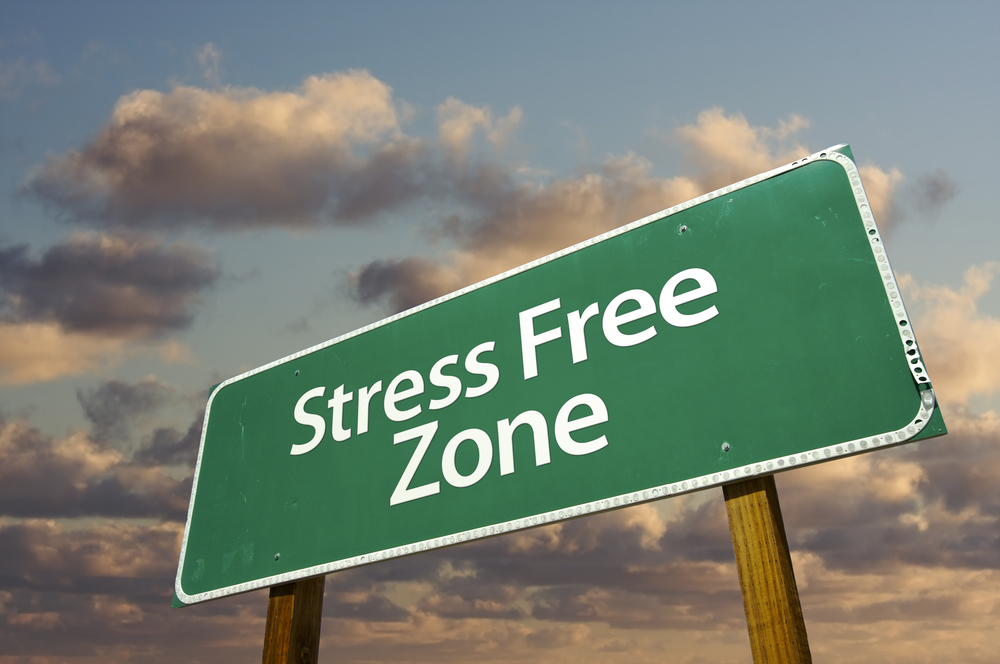
How to Live Life Stress- Free
All of us experience stress at some point in our lives -it is our body’s natural reaction to help us deal with certain situations that are out of our comfort zone, or even during occasions when we feel over-stimulated. However, too much stress can be extremely damaging to our mental and physical health and may leave you with long-term conditions if it not managed correctly. All of us have the ambition of leading a stress-free life, so this guide will give you some helpful hints on what you can do to keep yourself calm when you are feeling out of your depth:
1. Follow a routine
It is good for your mental health to stick to a daily routine to add structure to your day. This will enable you to stay focused and allow you to meet your most important goals, which can often be left incomplete if you fail to stay organized. By having a clear structure, you may find it much easier to get tasks completed than procrastinating, which leaves you more time to enjoy hobbies and social time.
However, it would not be wise to overload yourself with tasks that are not compulsory. Taking even a brief look at a hectic schedule will make you feel immediately stressed without getting started, so reduce the number of commitments to just the vital ones. It is okay to say no – get rid of the tasks that do not make a positive difference to your day, and you will feel the weight lift off your shoulders.
2. Simplify your savings

Finance is one of the key causes of stress, and you may have many sleepless nights worrying about your outgoings versus your income and whether you have enough in your account to pay your next bill. In this case, streamlining your finances by budgeting will allow you to live a more stress-free life. You should set up automatic payments for bills that are due to be paid monthly; make a note of where cash is being spent to calculate how much disposable income you have left and cut down your food shopping expenses where possible.
3. Do not take on other people’s problems
If you are an empathetic person, it is natural for you to want to be there for someone close to you when they are going through a difficult time. However, being a constant support is bound to impact your own mental health – you cannot keep it up. When you continuously take on other people’s problems, you get into the routine of enabling, which prevents the individual from being able to handle their own issues. This is neither healthy for you nor them. Although it is good to support the occasion, try and empower them to tackle their own concerns.
4. Let go of people who do not make you happy
Many people wish to have many people in their life to feel better about themselves. If you have got into the habit of building up your friend list, ask yourself – do all of those individuals make you a happier and more well-rounded person, and understand you on a deep level? If the answer is no, they probably do not deserve a place in your life. It can be a drain to spend time with negative people or those who take you for granted, so if you find that some people are not adding anything positive to your life, it may be time to let go. Over time, some relationships can grow toxic. Therefore, cutting those ties immediately is the best choice you can make for your mental health.
5. Understand when you need a break

With more and more people working from home due to the ongoing pandemic, it can be not easy to separate work hours from your personal time, which can impact your mental health. As a result, you may feel more overworked than when you were in the office. No-one can be productive constantly and putting that pressure on yourself will only make you feel stressed out. If you feel you need a break, feel free to do so if time allows. Get away from your desk and forget about work – even for just a few minutes, and you will find that this will make a huge difference. A comfortable LoveSac bean bag is the ideal way to unwind or even to take a short nap when you need to get away from it all.
6. Declutter
Research from UCLA’s Centre on Everyday Lives and Families (CELF) has proven that decluttering can have significant positive impacts on your mental health. The stress hormone cortisol and clutter have been shown to directly link the brain, which may lead you to experience feelings of confusion and disorder, which is why you should be clearing out your household objects regularly to feel more in control of your life. Amassing too much stuff is a habit that many of us are guilty of. However, clearing out your rooms regularly will allow you to feel freer, think more clearly, and regain order in your life.
7. Take care of yourself
With the hecticness of everyday life, it can be easy to neglect your own needs. When we find ourselves in particularly stressful situations, we end up getting so overstimulated and tense that our health and wellbeing goes out of the window. You may also find you are eating unhealthy meals, failing to exercise, or not getting enough sleep during periods of extreme stress, which will, in time, start to impact you physically. With this in mind, recognize that your health and wellbeing is a priority, and you have every right to put yourself first – even when other situations demand your attention.
Do not wait until you hit breaking point until you start implementing stress busters into your day-to-day life – you will be amazed at just how different you will feel by being in control and knowing how to cope in tough situations.




